The “Top 10 Greatest F1 Drivers of All Time” list showcases some of the most exceptional talents to grace the sport. These drivers, who have become legends in the world of Formula 1, have left an indelible mark on the history of the sport. Their remarkable skills, determination, and success on the track have cemented their positions in this esteemed list.
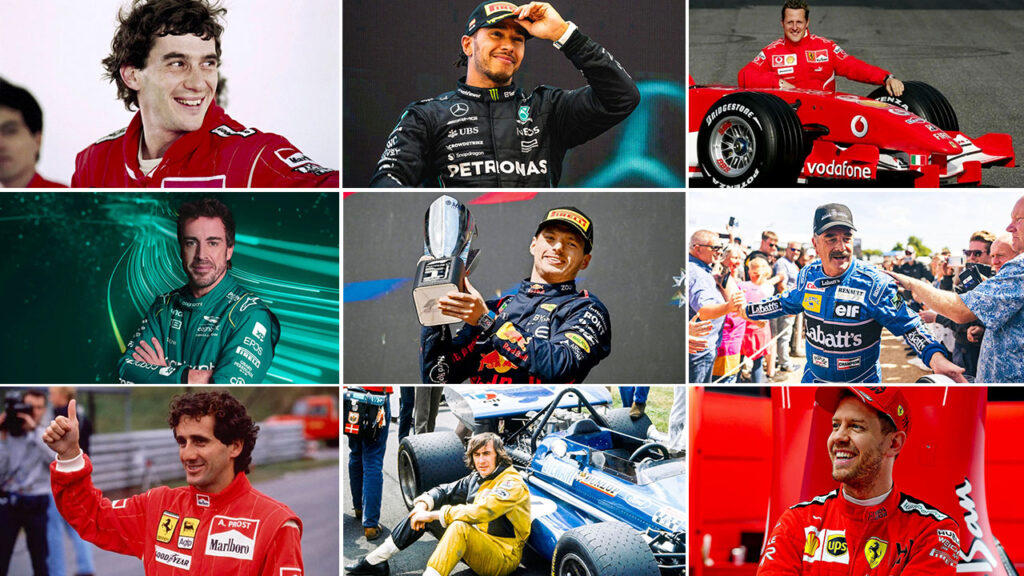
Top 10 Greatest F1 Drivers of All Time
In this article, we will delve into the careers of these extraordinary individuals, exploring their achievements, driving styles, and the impact they have made on the sport. From Lewis Hamilton’s unmatched dominance in the modern era to Ayrton Senna’s untimely death, each driver has a unique story that contributes to their status as one of the greatest F1 drivers of all time.
F1 drivers ranked by wins
| Rank | Driver | Races Started | Wins | Championships |
| 1 | Lewis Hamilton | 322 | 103 | 7 |
| 2 | Michael Schumacher | 308 | 91 | 7 |
| 3 | Sebastian Vettel | 299 | 53 | 4 |
| 4 | Alain Prost | 199 | 51 | 4 |
| 5 | Max Verstappen | 175 | 45 | 2 |
| 6 | Ayrton Senna | 161 | 41 | 3 |
| 7 | Fernando Alonso | 367 | 32 | 2 |
| 8 | Nigel Mansell | 187 | 31 | 1 |
| 9 | Jackie Stewart | 99 | 27 | 3 |
| 10 | Niki Lauda | 171 | 25 | 3 |
| 10 | Jim Clark | 72 | 25 | 2 |
1. Lewis Hamilton: Unparalleled Dominance in the Modern Era

As a seven-time World Champion, Lewis Hamilton’s dominance in the modern era is unparalleled. His incredible speed, strategic prowess, and relentless drive for success have established him as one of the greatest F1 drivers of all time.
Hamilton’s journey to success began with his debut in Formula 1 in 2007 with McLaren. He quickly showcased his talent, securing his first World Championship in 2008. Since then, he has continued to dominate the sport, breaking numerous records and rewriting the history books.
His ability to extract maximum performance from his car, coupled with his exceptional racecraft and tactical decision-making, sets Hamilton apart from his competitors. He constantly pushes the boundaries of the sport, inspiring a new generation of drivers and fans alike.
- First race: 2007 Australian Grand Prix
- World Championships: 7 (2008, 2014-15, 2017-20)
- Number of races: 32
- Number of wins: 103
- Number of pole positions: 104
- Career points: 4553.5
2. Michael Schumacher: The Force to Be Reckoned With
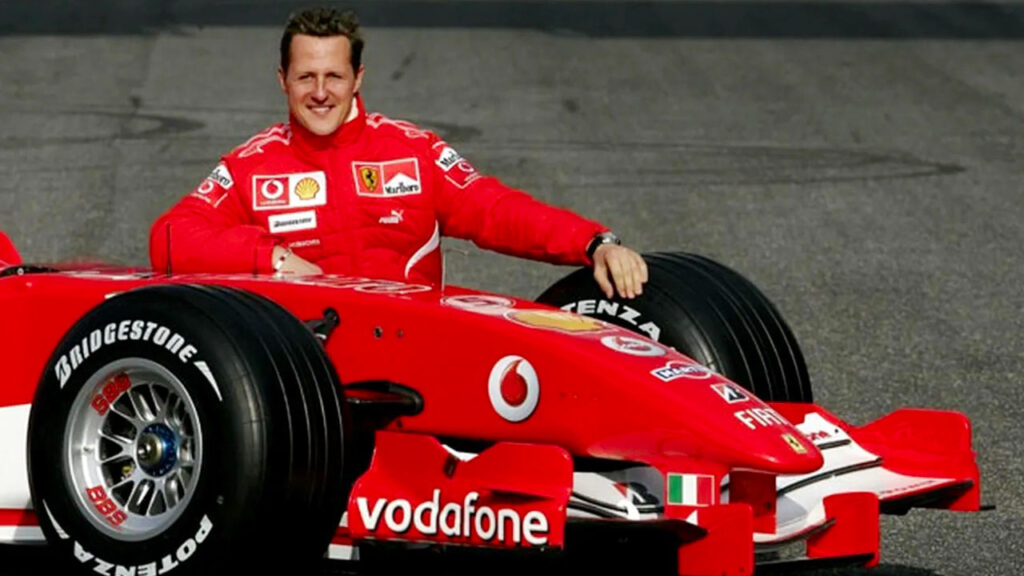
Michael Schumacher’s impact on the sport of Formula 1 cannot be overstated. With an astonishing seven World Championship titles, Schumacher firmly solidified his place among the all-time greats of the sport. His exceptional racecraft, impeccable technique, and fierce competitiveness made him a force to be reckoned with.
Schumacher’s career spanned over two decades, during which he drove for Benetton and Ferrari, with whom he achieved the majority of his success. He was known for his relentless pursuit of perfection and his ability to consistently deliver outstanding performances under pressure.
His unparalleled record of 91 Grand Prix victories and his incredible ability to extract the maximum performance from his car made him a true legend. Schumacher’s influence on the sport can still be felt to this day.
- First race: 1991 Belgian Grand Prix
- World Championships: 7 (1994-95, 2000-04)
- Number of races: 308
- Number of wins: 91
- Number of pole positions: 68
- Career points: 1566
3. Sebastian Vettel: A Meteoric Rise to Greatness
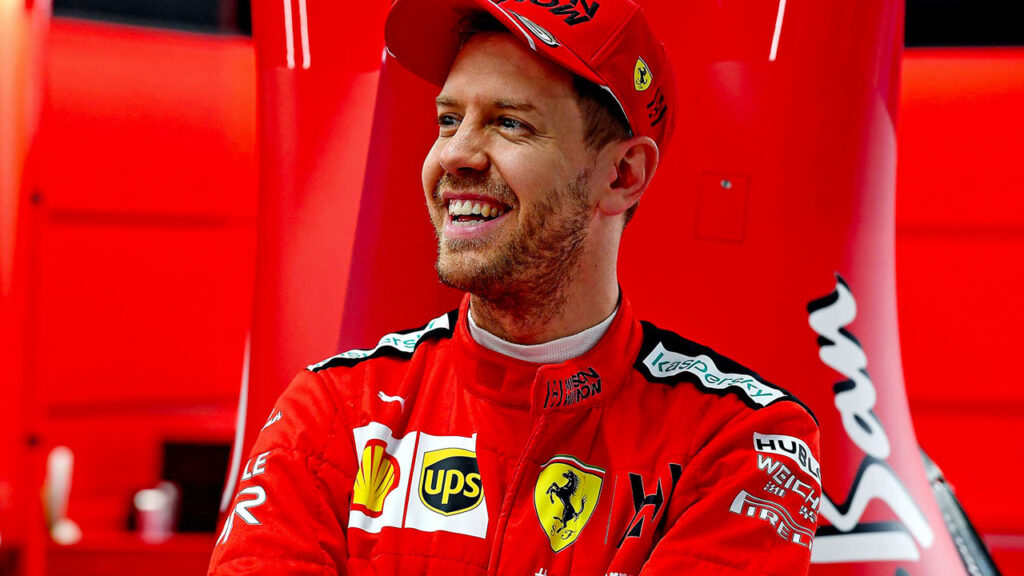
Sebastian Vettel’s meteoric rise in Formula 1 saw him secure four consecutive World Championships from 2010 to 2013. His exceptional speed, incredible consistency, and tactical brilliance have solidified his place among the all-time greats of Formula 1.
Vettel burst onto the scene with Red Bull Racing, displaying an extraordinary level of talent and maturity beyond his years. His ability to consistently deliver exceptional performances, especially in qualifying, earned him the nickname “Baby Schumi.”
Throughout his career, Vettel showcased his skill in wet conditions, his aggressive overtaking maneuvers, and his ability to manage tires effectively. While his recent years have seen him face challenges, his achievements in his prime cannot be overlooked.
- First race: 2007 United States Grand Prix
- World Championships: 4 (2010-13)
- Number of races: 300
- Number of wins: 53
- Number of pole positions: 57
- Career points: 3098
4. Alain Prost: Precision and Intelligent Driving
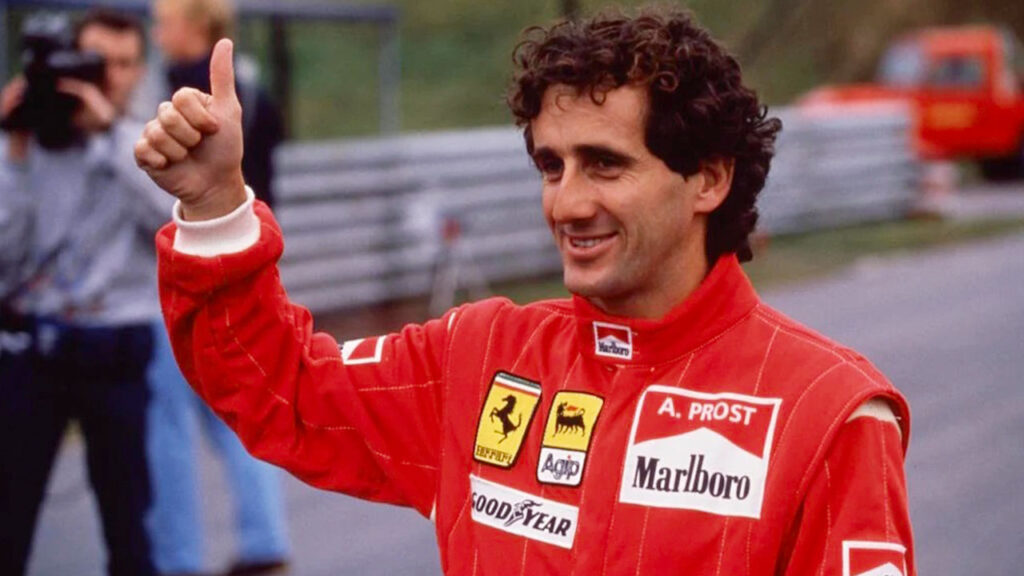
Alain Prost’s remarkable career includes four World Championships and an impressive record of 51 Grand Prix wins. Known for his precision and intelligent driving style, he is widely regarded as one of the most talented drivers in history.
Prost’s rivalry with Ayrton Senna is legendary, with the two drivers pushing each other to the limits on and off the track. Prost’s ability to analyze his opponents’ strengths and weaknesses, combined with his calculated approach to racing, made him a formidable competitor.
His career spanned over a decade, during which he drove for teams like McLaren, Renault, and Williams. Prost’s ability to adapt to different cars and consistently deliver strong performances is a testament to his skill and expertise.
- First race: 1980 Argentinian Grand Prix
- World Championships: 4 (1985-86, 1989, 1993)
- Number of races: 199
- Number of wins: 51
- Number of pole positions: 33
- Career points: 768.5
5. Max Verstappen: A Rising Star in Formula 1
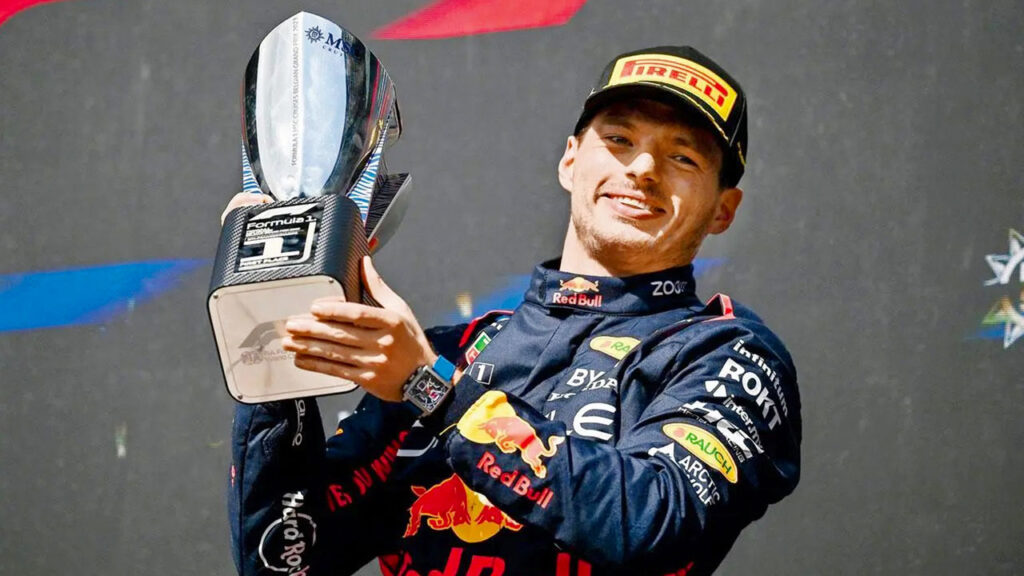
Despite his young age, Max Verstappen has already established himself as a force to be reckoned with in Formula 1. With his daring overtakes, raw talent, and fearless approach, Verstappen continues to impress and has the potential to climb even higher on this list in the future.
Verstappen made his debut in Formula 1 at the age of 17, becoming the youngest driver in history to start a race. Since then, he has continued to showcase his exceptional driving skills, often pushing his car to the limit.
His aggressive driving style, combined with his ability to make bold strategic decisions, has resulted in several impressive victories. Verstappen’s determination and relentless pursuit of excellence make him a driver to watch for years to come.
- First race: 2015 Australian Grand Prix
- World championships: 2 (2021, 2022)
- Number of races: 175
- Number of wins: 45
- Number of pole positions: 27
- Career points: 2325.5
6. Ayrton Senna: Forever a Legend
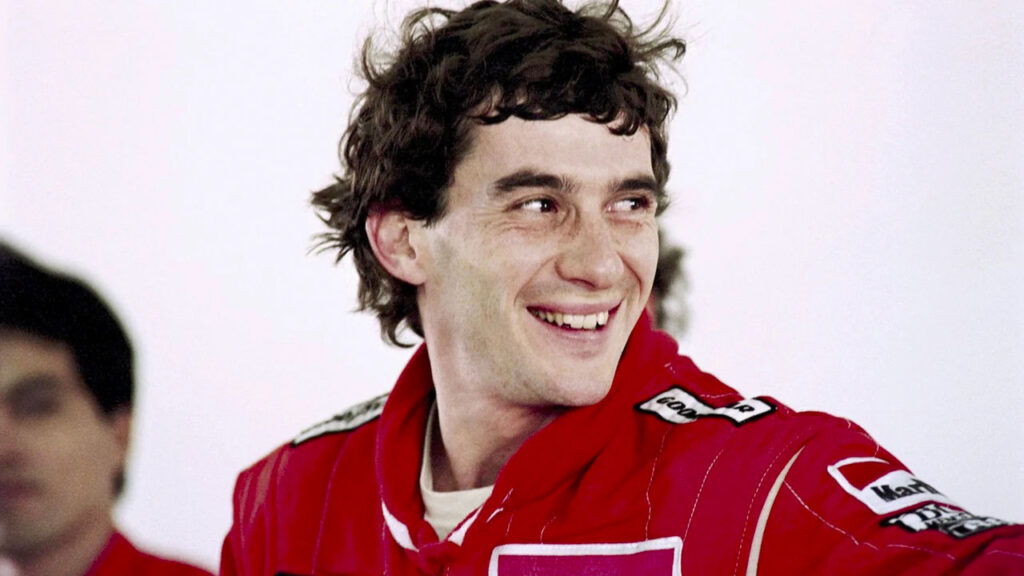
Ayrton Senna’s untimely death only heightened his status as a legendary figure in Formula 1. Known for his unparalleled speed, extraordinary talent, and intense passion, Senna’s presence continues to inspire and his legacy remains firmly intact.
Senna’s career was marked by his fierce rivalry with Alain Prost, with the two drivers engaged in intense battles on the track. His aggressive driving style and willingness to take risks set him apart from his contemporaries.
His three World Championships and record-breaking pole positions are a testament to his exceptional skill and determination. Senna’s tragic passing in 1994 shook the world of Formula 1, but his impact on the sport will never be forgotten.
- First race: 1984 Brazilian Grand Prix
- World Championships: 3 (1988, 1990-91)
- Number of races: 161
- Number of wins: 41
- Number of pole positions: 65
- Career points: 610
7. Fernando Alonso: Extracting Maximum Performance
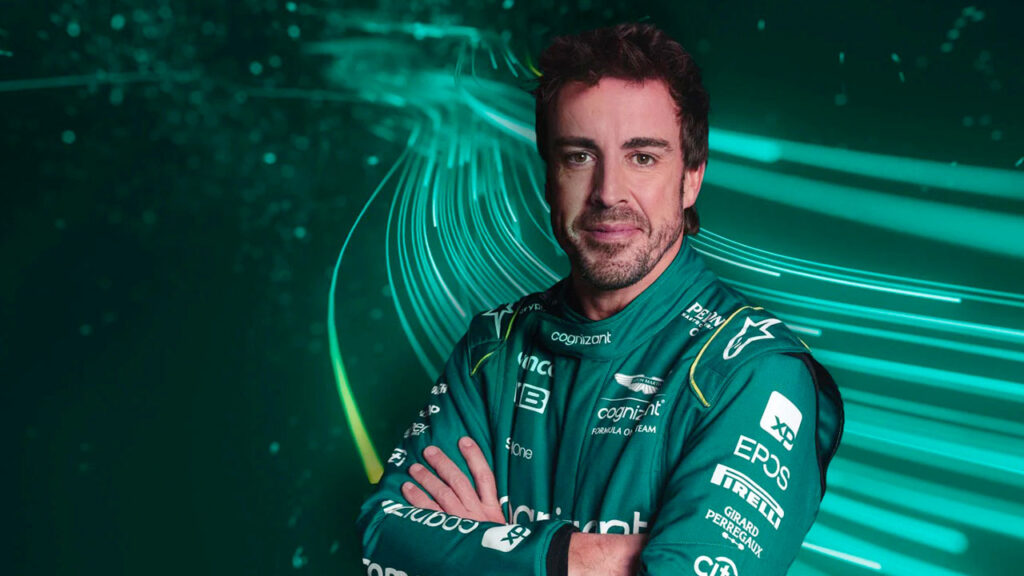
Fernando Alonso’s exceptional driving skills and natural talent were evident throughout his career. With two World Championships under his belt, Alonso’s ability to extract the maximum performance from any car placed him among the elite drivers of his time.
Alonso’s career spanned over two decades, during which he drove for teams like Renault, McLaren, and Ferrari. His versatility as a driver allowed him to perform well in different environments and adapt to various technical changes in the sport.
His fierce competitiveness, combined with his relentless work ethic and determination, made him a fan favorite. Alonso’s return to Formula 1 in 2021 after a brief hiatus further solidifies his status as one of the greatest drivers of his generation.
- First race: 2001 Australian Grand Prix
- World Championships: 2 (2005-06)
- Number of races: 370
- Number of wins: 32
- Number of pole positions: 22
- Career points: 2210
8. Nigel Mansell: The Lion’s Determination
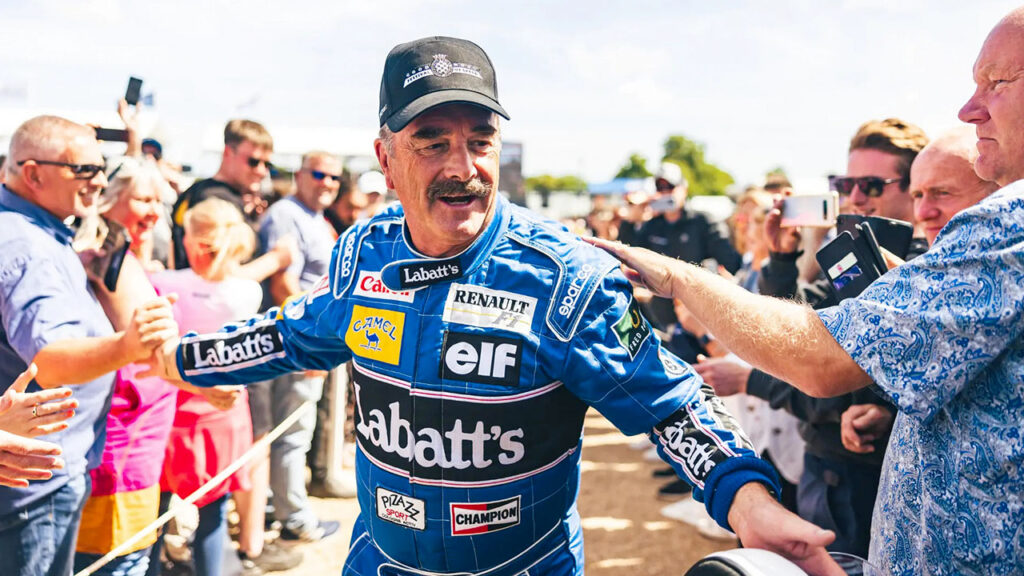
Nigel Mansell’s sheer determination and tenacity earned him the nickname “The Lion.” His never-give-up attitude, coupled with his aggressive driving style, secured him a World Championship and left an enduring impression on the sport.
Mansell’s career saw him drive for teams like Lotus, Williams, and Ferrari, with his most successful years being with Williams. His ability to extract maximum performance from his car, combined with his aggressive overtaking maneuvers, made him a formidable opponent.
Despite facing numerous setbacks and injuries throughout his career, Mansell never lost his fighting spirit. His on-track battles with drivers like Ayrton Senna and Alain Prost are legendary, cementing his place as one of the greatest drivers of his era.
- First race: 1980 Austrian Grand Prix
- World Championships: 1 (1992)
- Number of races: 187
- Number of wins: 31
- Number of pole positions: 32
- Career points: 482
9. Jackie Stewart: Beyond the World Championships
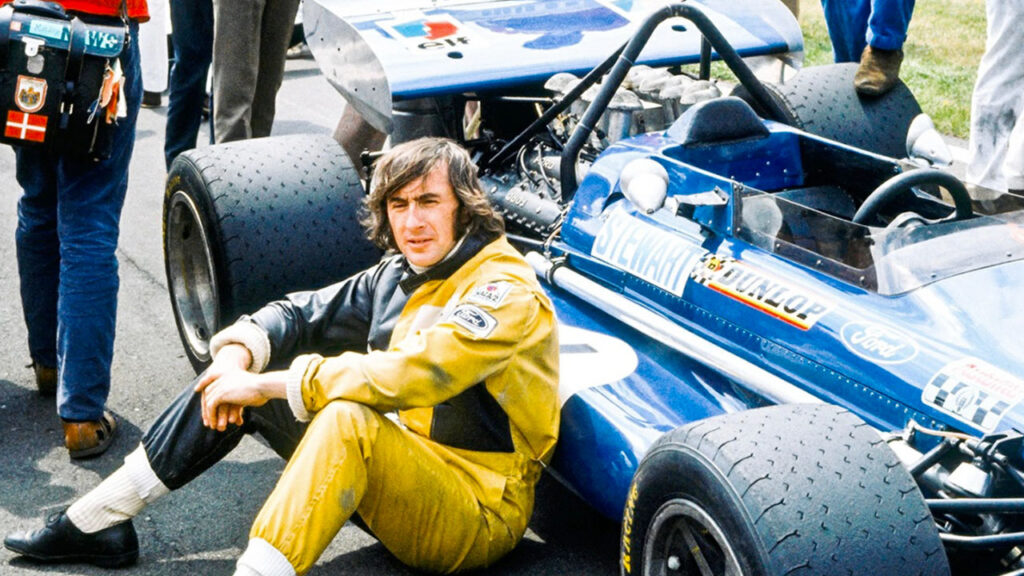
Jackie Stewart’s impact transcends his three World Championships. His tireless efforts to improve safety standards in Formula 1 have made a lasting impact. Stewart’s exceptional skill and dedication to the sport make him a true icon.
Stewart’s career spanned from the late 1960s to early 1970s, during which he drove for teams like Matra, Tyrrell, and March. His exceptional driving skills, combined with his strong advocacy for driver safety, earned him the respect and admiration of his peers.
Off the track, Stewart actively campaigned for better safety measures, leading to significant changes in the sport. His influence on improving driver safety is still felt to this day, making him one of the most important figures in the history of Formula 1.
- First race: 1965 South African Grand Prix
- World Championships: 3 (1969, 1971, 1973)
- Number of races: 99
- Number of wins: 27
- Number of pole positions: 17
- Career points: 360
10. Niki Lauda: Resilience and Technical Expertise
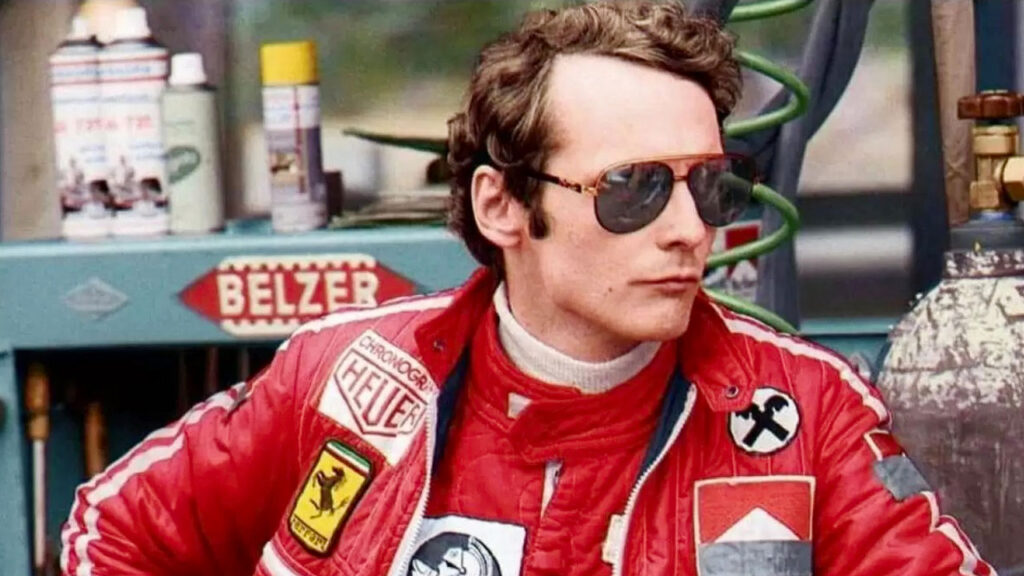
Niki Lauda’s remarkable comeback from a near-fatal accident showcased his indomitable spirit. With three World Championships, Lauda’s determination, resilience, and technical expertise make him one of the greatest drivers in the history of Formula 1.
Lauda’s career saw him drive for teams like Ferrari, McLaren, and Brabham. His ability to consistently deliver strong performances, particularly in wet conditions, made him a formidable competitor.
His comeback in 1976 after a horrific crash at the Nürburgring is a testament to his courage and determination. Lauda’s ability to overcome adversity and achieve success on and off the track makes him an inspiration to drivers around the world.
- First race: 1971 Austrian Grand Prix
- World Championships: 3 (1975, 1977, 1984)
- Number of races: 171
- Number of wins: 25
- Number of pole positions: 24
- Career points: 420.5
Conclusion
These ten drivers have etched their names in the annals of Formula 1 history through their exceptional achievements and contributions to the sport. Their skill, talent, and unwavering dedication have solidified their places as the top 10 greatest F1 drivers of all time.
From Lewis Hamilton’s unmatched dominance in the modern era to Ayrton Senna’s enduring legacy, each driver has left their mark on the sport in their own unique way. Their stories of triumph, resilience, and sheer talent continue to inspire fans and shape the future of Formula 1. As the sport evolves, these legends will be remembered as icons of the sport, forever etched in the memories of racing enthusiasts around the world.
History of Formula One
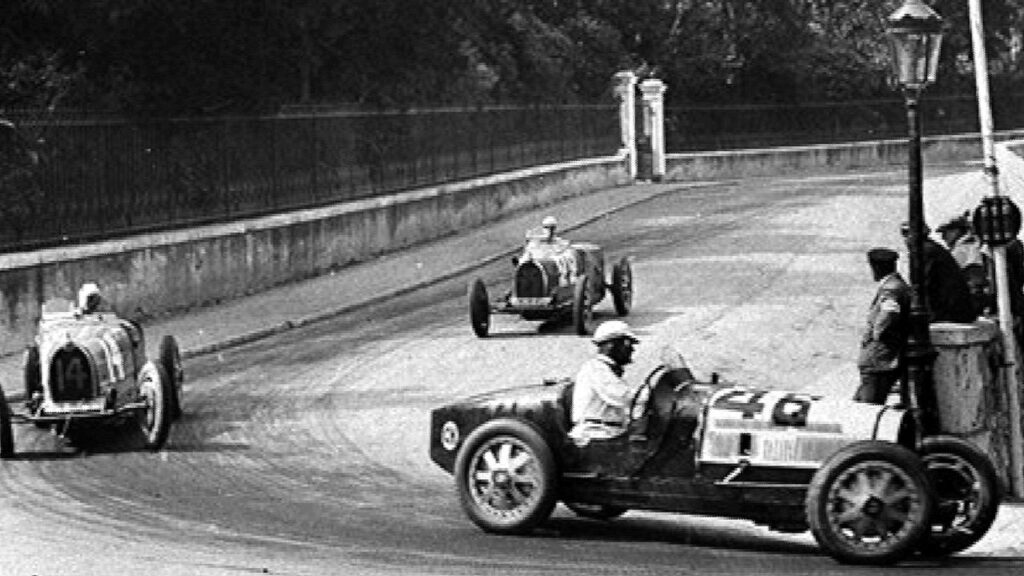
The history of Formula One (F1) is rich and fascinating, marked by technological innovation, intense competition, and legendary drivers. Here’s an overview of the key milestones and developments in the history of Formula One:
Early Years (1950s):
- Formula One World Championship was inaugurated in 1950, with the first race held at Silverstone, UK.
- Italian Giuseppe Farina became the first F1 World Champion driving for Alfa Romeo.
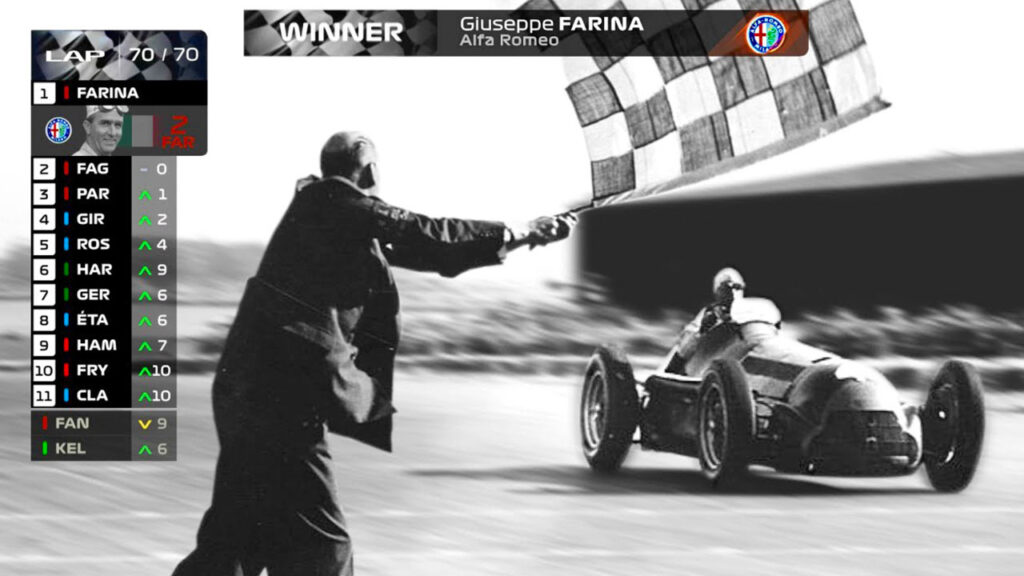
1950s-1960s:
- Juan Manuel Fangio, an Argentine driver, dominated the 1950s, winning five World Championships.
- The ‘Monaco Grand Prix’ became one of the most prestigious and iconic races on the calendar.
- Technological advancements, including the introduction of rear-engine cars, revolutionized F1 racing.
- Teams like Ferrari, Mercedes, and Lotus emerged as dominant forces.
1970s-1980s:
- The rivalry between James Hunt and Niki Lauda captured global attention and was depicted in the movie “Rush.”
- Ground effects technology was introduced, enhancing aerodynamics and cornering speeds.
- Drivers like Ayrton Senna, Alain Prost, and Nelson Piquet emerged as new stars.
- Turbocharged engines gained prominence, increasing power output significantly.
1990s:
- Ayrton Senna and Alain Prost’s intense rivalry defined this era.
- Advancements in safety, including the introduction of the Head and Neck Support (HANS) device, followed tragic accidents like those of Senna and Roland Ratzenberger.
- Michael Schumacher emerged as a dominant force, winning multiple championships with Benetton and Ferrari.
2000s:
- Michael Schumacher continued his success, setting several records for wins and championships.
- Technological advancements led to improvements in aerodynamics, materials, and tire technology.
- Red Bull Racing and Sebastian Vettel began to challenge the established order.
2010s:
- The hybrid power unit era began, featuring V6 turbocharged engines with energy recovery systems.
- Lewis Hamilton emerged as a dominant driver, winning multiple championships with Mercedes.
- The rivalry between Mercedes and Ferrari intensified, leading to close battles for constructors’ titles.
- Safety and environmental concerns led to changes in regulations to promote fuel efficiency and sustainability.
2020s and Beyond:
- The introduction of cost caps and other regulatory changes aimed at promoting closer competition and reducing financial disparities among teams.
- Sustainability and environmental initiatives gained prominence, with a focus on reducing the sport’s carbon footprint.
- New venues and markets were explored to expand the global reach of F1.
Throughout its history, Formula One has evolved not only in terms of technology and racing strategy but also in terms of its impact on popular culture and global sporting events. The sport continues to captivate fans worldwide with its thrilling races, iconic tracks, and remarkable drivers.


